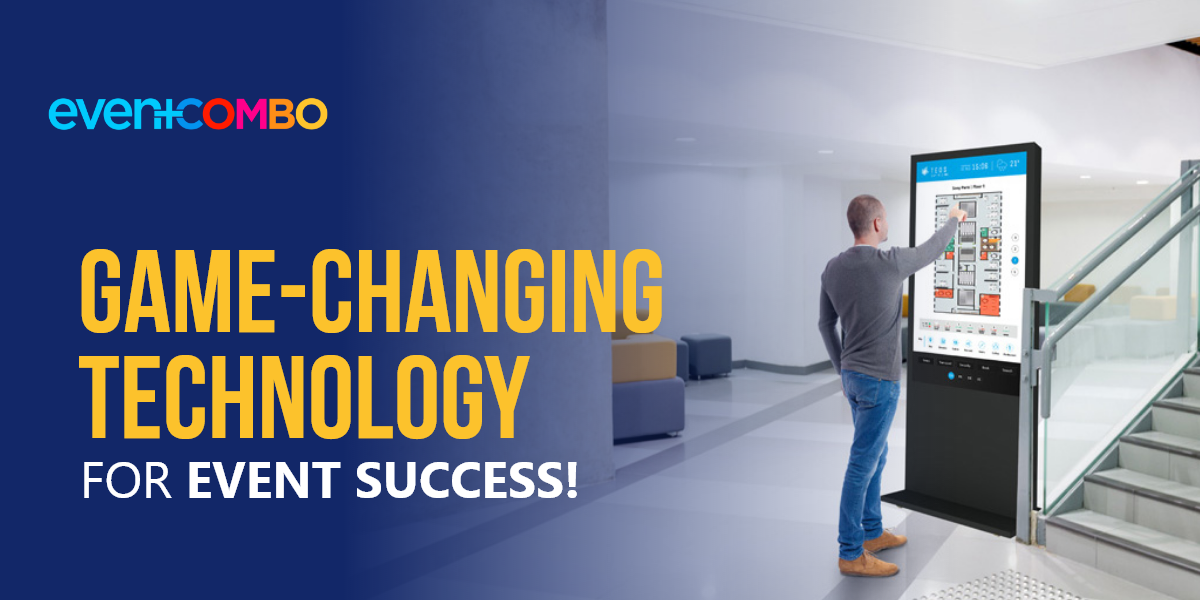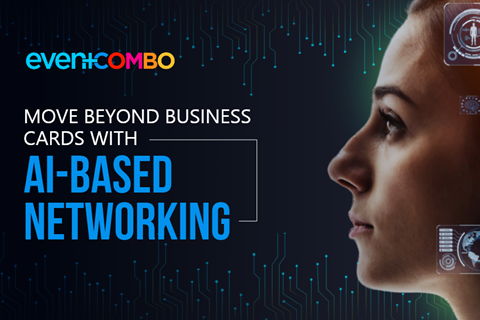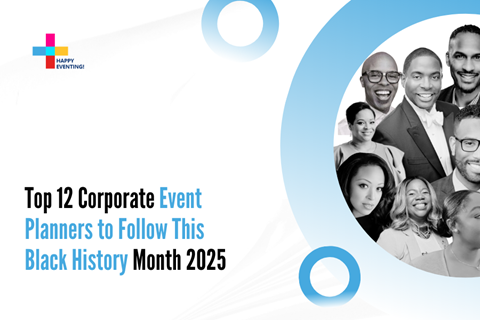

Event technology has touched every aspect of event planning; from registration, attendee engagement, to post-event analysis. Planners hosting large in-person events and conferences benefit the most from event management tools as they streamline the entire process, leading to exceptional experiences. A digital kiosk is one of the top innovations for enriching attendee experiences. In fact, the interactive kiosk market is projected to be worth USD 52.01 billion by 2030!
As a robust example of event technology, it makes so many tasks of attendees effortless. Whether it's checking in, finding registration details, or keeping up-to-date about the event agenda, the use cases are endless.
Read this blog to understand the full potential of this tool and how it enables you to manage events more effectively. Brace yourself for some amazing insights and strategies to make your event stand out in the crowd.
What Are Digital Kiosks?
Digital kiosks are smart devices with interactive interfaces that provide physical user interaction. Through them, people can deposit or take out money, order a ticket, print a pass and perform similar transactions. With digital kiosks, accessing information about the company's products, services, and offerings becomes easy and the user does not need any additional guidance.
You can think of a digital kiosk as a modern-day ATM or vending machine. It quickly dispenses information and gives you directions for what you want to do at an event. Just like a self-service ATM or vending machine, the kiosk offers on-demand access to information, tickets, registration, venue, and other event details based on what you touch or select.
Today, 67% of people prefer using self-service options without relying on others for getting things done. The rise of self-service kiosks can be largely attributed to this development. Such kiosks are a common sight at many large events. They give complete details about the event to attendees. The kiosks offer various self-service options for visitors to easily navigate the venue, buy tickets, and merchandise, check session schedules, and registration details, make last-minute changes to their schedules, and more.
What Creates an Excellent Event Experience?
Event experience, in large part, is about what the attendee feels before, during, and after the event. Frictionless experiences boost the attendee’s perception of the brand. They begin to view the brand positively and associate it with reliability. A memorable event experience hinges on the following:
Level of engagement: When attendees feel engaged during the event, it contributes to the experience positively. The integration of interactive elements and games like live polls, quizzes, and surveys increases engagement. It also helps event organizers gauge the effectiveness of their strategies.
Personalization: People love to attend events that are tailored to their interests. It makes them feel heard and valued. One of the best technologies used for imparting tailored experiences is Artificial Intelligence. It helps you predict your attendee behavior and deliver personalized interactions to refine your event planning approach.
Ease of navigating the event: An event experience begins from the time you start promoting it. It becomes great when visitors can discover your event's unique value easily, register or purchase tickets, print their badges or credentials, check in and know the sessions to attend in a hassle-free way. The smoother this process is, the better the final experience.
Event immersion: An excellent event experience is one that can be recalled. It resonates on the emotional level and leads to complete engagement. Planners usually utilize Augmented Reality (AR) and Virtual Reality (VR) to foster retention. These technologies enable brands to showcase their offerings by gamifying certain aspects to boost engagement and leave a lasting impact on attendees.
Discover how Eventcombo’s event management software help you efficiently organize and manage gatherings of all sizes.
The Link Between Digital Kiosk for Enhanced Event Experience
Now that you know the major components of a great event experience, let's find out how a digital kiosk can take it to the next level.
Self-Service Registration & Access to Details
Self-service event registration kiosks allow attendees to quickly register and collect their badges. There is no need for you to employ any registration staff. In addition, attendees can access and view their registration details and ensure its up-to-date and accurate. This prevents attendees from standing in long queues, giving a smooth start to their event experience.
Assistance with Navigation
No one likes to feel stranded after entering a venue. This is particularly important if you have booked a large venue and have a long event schedule. Self-service digital kiosks empower people to navigate the venue with their interactive and user-friendly tools. It allows people to locate specific areas, such as exhibitor booths, restrooms, restaurants, areas for buying merchandise, and points of interest. Event planners use them as wayfinding stations. The digital kiosk shows interactive maps and directories that guide attendees across the premises.
For example, REDYREF’s interactive wayfinding kiosk allows guests to locate people, offices, and meeting rooms, sending wayfinding maps straight to their devices!
Gamification
Gamification strategies are the best ways to enhance event experience with digital kiosks. Organizers can make event-themed trivia quizzes, puzzles, and photo challenges. Go ahead and equip the digital kiosk with AR capability for immersive experiences like virtual tours. Entertainment kiosks are dedicated to making the event fun-filled. Guests can receive free materials, listen to music, podcasts, and stream the content they wish during breaks.
Event Promotion
You can customize a kiosk to display native ads and sponsor promotions without disrupting the flow of users. Such devices answer common queries of guests, display slideshows, and demonstrate the new products. Ultra HD 4K display kiosks are ideal to deliver e-literature, poster sessions, product launches.
Lead Capture
Interactive self-service kiosks set up at strategic places allow visitors to input their business details conveniently. Kiosks are excellent options to offer contact and lead forms that transmit to the customer relationship management systems. You can then analyze the information and create relevant follow-up calls.
Promote your event, gamify it, and capture leads continuously with our all-in-one event management software.
Tailored Recommendations
AI-driven digital kiosks generate recommendations based on attendees’ interests and preferences. Such advanced devices allow attendees to discover relevant sessions, exhibitors, or other attractions they may have otherwise missed. Kiosks equipped with AI use predictive analytics to forecast attendee needs and make relevant suggestions. For example, it can recommend a product refill or replacement based on typical usage patterns.
How to Find the Best Digital Kiosk for Your Event?
Analyze the Complexity of Your Event
Start by assessing the size and complexity of your event. The features in the kiosk should match your event scale. If you have a large event, the kiosk will need advanced features like ticket scanning, lead capture capability, and facial recognition for security.
Check Whether the Kiosk Enables Seamless Registration
Hassle-free registration and admission are crucial to deliver great experience. Your digital kiosk should allow attendees to register quickly, print their on-site badges, receive tickets, and see customized agendas.
Assess the Security
The kiosk software should adhere to robust security and customer data protection standards. Assess security features of the kiosk like biometric data collection and gesture control interaction. Also, assess the data management capabilities to simplify the check-in process.
Consider Customization and Integration
Your kiosk should have the ability to be customized with your event’s theme and branding. It should also integrate with your current event management system and CRM. This will help keep a record of your prospects and follow up with them.
Assess the Scalability
Choose a digital kiosk that can adjust to the dynamic event requirements and attendee numbers. For instance, a good digital kiosk can handle various check-in methods like QR code scanning and name searches. It should also be able to accept different payment options like EMV chip cards and NFC or contactless methods.
Real Time Monitoring
You need insights into how your event is performing. So, consider a digital kiosk with analytics capabilities. It should be able to track attendee check-ins, session attendance, and other metrics set by you.
Compliance With GDPR
The kiosk should comply with relevant regulations like the GDPR by removing the need for printing badges. It should have an integrated system that keeps all attendee data safe.
Event management technology compliant with GDPR ensures complete confidentiality of your attendee’s personal data. All our solutions are GDPR ready and leverage the strongest security protocols.
Consider Budget
The check-in kiosks should not only be rich in functionalities, but also fall within your budget. It is best to invest in kiosks that can scale to meet the increasing event complexity.
Unlock the Power of Digital Kiosk for an Unforgettable Event!
Self-service digital kiosks are indeed multifaceted gems that more planners need to become aware of. Their ability to offer seamless experience from start till end makes them an integral part of today's event needs. Find the kind of kiosk with features that will add the most value to your event. Using them strategically is the key to fulfilling your event goals.
If you're keen to explore event technology to save time and boost efficiency of your planning, check out Eventcombo's solutions. Click here.

Networking is one of the most valuable ways to discover boundless opportunities and for 77.7% of business professionals , in-person conferences open a greater scope to make rewarding connections.

When planning a healthcare fair, the goal goes beyond booking a venue and sending out invites. You’re creating an event that brings together healthcare professionals, researchers, and exhibitors, all seeking value and...

Diversity and inclusion are at the heart of the events industry, where planners are focused on creating experiences that bring together people from all walks of life.